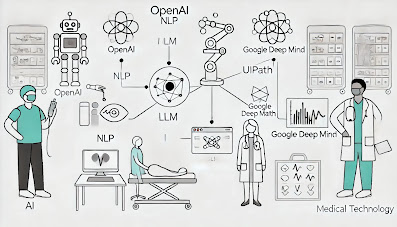Lipid and metabolic disorders are a broad group of conditions that affect how the body processes fats (lipids) and energy.
Here's a breakdown of the types of diseases in this category and Viking Therapeutics' role in treating them:
🧬 Common Lipid and Metabolic Disorders
These can be genetic or acquired and often overlap with obesity, diabetes, and cardiovascular disease:
1. Lipid Disorders
-
Hypercholesterolemia (high LDL/"bad" cholesterol)
-
Hypertriglyceridemia (high triglyceride levels)
-
Familial hypercholesterolemia
-
Mixed dyslipidemia (elevated LDL + triglycerides, low HDL)
2. Metabolic Disorders
-
Non-alcoholic fatty liver disease (NAFLD) and its more severe form:
-
Non-alcoholic steatohepatitis (NASH)
-
-
Type 2 diabetes mellitus
-
Obesity and metabolic syndrome
-
Gaucher disease, Fabry disease, Pompe disease (rare, inherited)
-
Mitochondrial disorders (affecting cellular energy production)
🧪 Viking Therapeutics' Focus and Lead Assets
Viking is primarily focused on metabolic and endocrine diseases, with particular emphasis on:
✅ 1. VK2809 – Lead candidate for NASH and lipid disorders
-
A thyroid hormone receptor beta (TRβ) agonist.
-
Designed to reduce liver fat, improve lipid profiles, and treat NASH.
-
In Phase 2b clinical trials (as of mid-2024) with promising results.
-
Shown significant reductions in liver fat and improvements in LDL/triglycerides.
✅ 2. VK2735 – GLP-1 receptor agonist for obesity and metabolic disease
-
Part of the GLP-1 class, like semaglutide (Ozempic/Wegovy).
-
Targets weight loss and possibly type 2 diabetes.
-
Both injectable and oral formulations are in development.
-
Competing in the high-growth obesity/diabetes market.
📊 Does Viking Have a Lead?
Viking is not yet a commercial-stage company, but:
-
VK2809 is a strong contender in the NASH race, potentially rivaling Madrigal's resmetirom (Rezdiffra), which got FDA approval in 2024.
-
VK2735 is part of the ultra-competitive GLP-1 weight loss/diabetes market, where Novo Nordisk and Eli Lilly currently dominate.
So while Viking is not a market leader yet, it has:
-
Best-in-class potential in NASH with VK2809.
-
A promising pipeline that could disrupt obesity treatment with VK2735.
As Viking Therapeutics (VKTX) advances its high-potential assets in NASH and obesity, it becomes an increasingly attractive acquisition target, especially in the context of:
-
The massive commercial potential of NASH (non-alcoholic steatohepatitis) and obesity markets
-
Its de-risked clinical programs, with strong Phase 2 data and growing investor interest
-
The patent-protected, next-generation nature of its GLP-1 and thyroid hormone receptor beta (THR-β) drug candidates
Here’s a breakdown of potential suitors and why they might be interested:
🧬 Top Potential Acquirers of Viking Therapeutics
🔹 1. Pfizer (PFE)
Why?
-
Pfizer has struggled post-COVID to find new growth drivers.
-
It lacks a strong obesity or NASH program after setbacks like the discontinuation of danuglipron (oral GLP-1) due to side effects.
-
Viking's VK2735 (GLP-1 agonist, injectable and oral) could revive Pfizer's ambitions in metabolic disease.
🔹 2. Eli Lilly (LLY)
Why?
-
Already dominating the obesity/diabetes market with Mounjaro (tirzepatide) and Zepbound.
-
A strategic acquisition of Viking could:
-
Lock in next-gen GLP-1 competition.
-
Add a THR-β asset (VK2809) to expand into NASH—a logical adjaceny to obesity and T2D.
-
🔹 3. Novo Nordisk (NVO)
Why?
-
The world leader in GLP-1 therapies (Ozempic, Wegovy).
-
Could acquire Viking to:
-
Defend its dominance against oral GLP-1 competition.
-
Enter the NASH market via VK2809, complementing obesity treatment.
-
🔹 4. Madrigal Pharmaceuticals (MDGL)
Why?
-
Approved Rezdiffra (resmetirom) for NASH, first of its class.
-
Viking’s VK2809 is a direct TRβ rival with differentiated liver targeting.
-
A defensive or complementary acquisition would eliminate its main clinical-stage competitor.
🔹 5. Roche / Genentech or Merck (MRK)
Why?
-
These Big Pharma players have limited or no current exposure in obesity and NASH.
-
Both are actively seeking pipeline expansion via acquisition.
-
Viking’s pipeline offers a clean, focused portfolio with first-in-class and best-in-class potential.
🧪 Summary: Why Viking is Attractive
| Feature | Strategic Value |
|---|---|
| VK2809 (THR-β) | Potentially best-in-class NASH therapy |
| VK2735 (GLP-1) | Oral and injectable forms offer flexibility |
| Market Tailwinds | Obesity + NASH markets projected to hit $100B+ |
| Clean Cap Table | No legacy liabilities or marketed products to manage |
| Small Cap | Easier acquisition (<$7B market cap) vs. peers |















